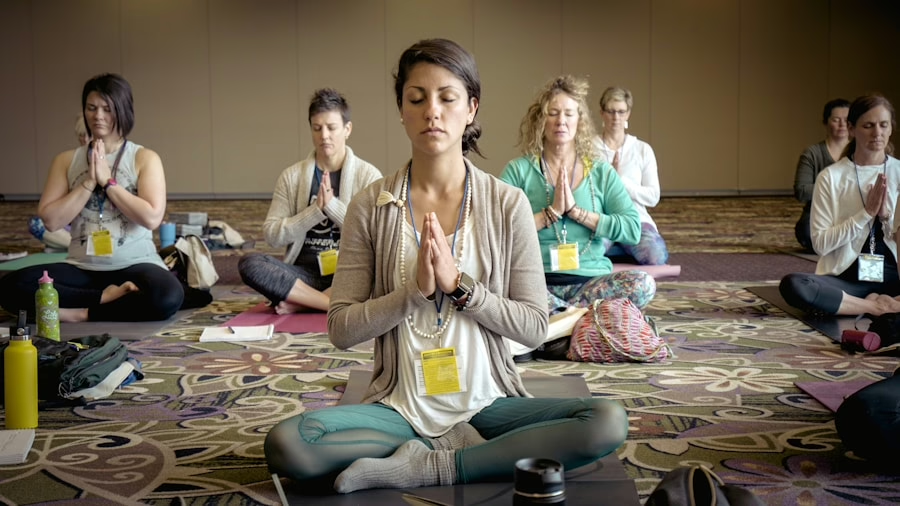Holistic wellness is an integrative approach to health that considers the whole person body, mind, and spirit rather than focusing solely on individual symptoms or ailments. This philosophy posits that optimal health is achieved when all aspects of a person are in balance and harmony. Holistic wellness encompasses various dimensions, including physical, emotional, social, spiritual, and environmental well-being.
By recognizing the interconnectedness of these elements, individuals can cultivate a more profound sense of health and fulfillment in their lives. At its core, holistic wellness encourages individuals to take an active role in their health journey. This means not only addressing physical health through diet and exercise but also nurturing emotional resilience, fostering meaningful relationships, and engaging in spiritual practices that resonate with one’s beliefs. The holistic approach empowers individuals to explore various modalities such as mindfulness, yoga, and alternative therapies allowing them to tailor their wellness strategies to their unique needs and preferences.
The Importance of Mind-Body Connection in Holistic Wellness
Practices for Strengthening the Mind-Body Connection
Understanding this connection allows individuals to adopt practices that foster mental clarity and emotional stability, ultimately leading to improved physical health. Practices such as mindfulness meditation and deep-breathing exercises are effective tools for strengthening the mind-body connection. These techniques encourage individuals to become more aware of their thoughts and feelings, enabling them to respond to stressors with greater resilience.
The Therapeutic Power of Creative Expression
Additionally, engaging in creative activities, such as art, music or writing, can serve as a therapeutic outlet for emotions, further enhancing the mind-body relationship.
Achieving Balance and Harmony
By prioritizing mental well-being alongside physical health, individuals can achieve a more balanced and harmonious state of being.
Holistic Nutrition: Nourishing Your Body from the Inside Out
Holistic nutrition emphasizes the importance of nourishing the body with whole, unprocessed foods that provide essential nutrients for optimal health. This approach goes beyond calorie counting or restrictive diets; it focuses on the quality of food consumed and its impact on overall well-being. A holistic diet includes a variety of fruits, vegetables, whole grains, lean proteins, and healthy fats, all of which contribute to physical vitality and mental clarity.
Moreover, holistic nutrition encourages individuals to listen to their bodies and recognize their unique dietary needs. This may involve identifying food sensitivities or preferences that affect energy levels and mood. For instance, some individuals may thrive on a plant-based diet rich in antioxidants, while others may require more protein for sustained energy. By cultivating a mindful relationship with food and prioritizing nutrient-dense options, individuals can enhance their physical health while also supporting emotional well-being.
The Role of Exercise and Movement in Holistic Wellness
Exercise is a cornerstone of holistic wellness, serving as a powerful tool for maintaining physical health while also promoting mental and emotional balance. Regular physical activity not only strengthens the body but also releases endorphins natural mood lifters that can alleviate stress and anxiety. Engaging in various forms of movement, such as walking, dancing, yoga, or strength training, allows individuals to find activities they enjoy, making it easier to incorporate exercise into their daily routines.
In addition to its physical benefits, exercise fosters social connections and community engagement. Group classes or team sports provide opportunities for individuals to bond with others who share similar interests, enhancing social well-being. Furthermore, outdoor activities like hiking or cycling can deepen one’s connection to nature, promoting a sense of peace and grounding. By embracing movement as a holistic practice rather than a chore, individuals can cultivate a more joyful and sustainable approach to fitness.
Managing Stress and Mental Wellbeing in a Holistic Lifestyle
Stress management is crucial for maintaining holistic wellness, as chronic stress can lead to a myriad of health issues ranging from anxiety disorders to cardiovascular problems. A holistic approach to stress management involves recognizing the sources of stress in one’s life and implementing strategies to mitigate its effects. Techniques such as mindfulness meditation, progressive muscle relaxation, and journaling can help individuals process their emotions and develop healthier coping mechanisms.
Additionally, fostering supportive relationships is vital for mental well-being. Engaging in open communication with friends or family members can provide emotional support during challenging times. Participating in community activities or support groups can also create a sense of belonging and reduce feelings of isolation. By prioritizing mental health through both individual practices and social connections, individuals can cultivate resilience against stressors and enhance their overall quality of life.
Integrating Holistic Practices into Your Daily Routine
Incorporating holistic practices into daily life requires intentionality and commitment but can lead to profound changes in overall well-being. Simple adjustments such as starting the day with a mindful morning routine that includes meditation or gentle stretching can set a positive tone for the day ahead. Additionally, taking regular breaks throughout the day to engage in deep-breathing exercises or short walks can help maintain focus and reduce stress levels.
Creating a balanced evening routine is equally important for holistic wellness. Limiting screen time before bed and engaging in calming activities such as reading or practicing gratitude can promote restful sleep. Furthermore, establishing consistent sleep patterns supports physical recovery and mental clarity. By weaving these holistic practices into everyday life, individuals can create a nurturing environment that fosters health and happiness.
Holistic Wellness for Long-Term Health and Happiness
Achieving long-term health and happiness through holistic wellness requires a commitment to continuous growth and self-discovery. This journey is not merely about addressing immediate health concerns but rather about cultivating a lifestyle that prioritizes well-being across all dimensions of life. Setting realistic goals whether related to nutrition, exercise, or mental health can help individuals stay motivated while also allowing for flexibility as circumstances change.
Moreover, embracing lifelong learning is essential for maintaining holistic wellness. This may involve exploring new wellness modalities, attending workshops or retreats, or simply staying informed about emerging research in health and wellness. By remaining open to new experiences and perspectives, individuals can adapt their practices over time, ensuring that their approach to holistic wellness remains relevant and effective. Ultimately, the pursuit of holistic wellness is a lifelong journey that fosters resilience, joy, and fulfillment in every aspect of life.




